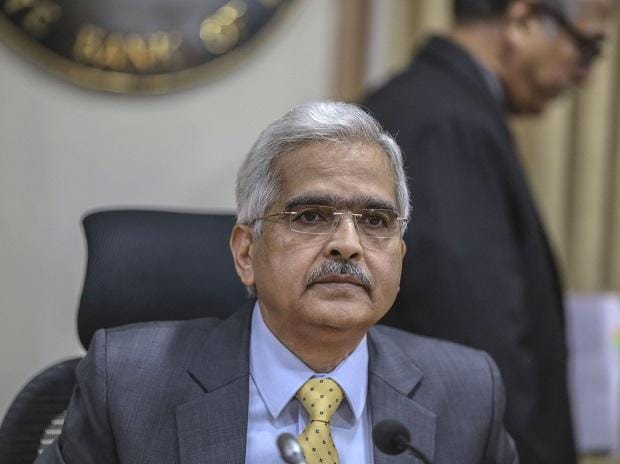-
ALSO READ
States' fiscal deficit to narrow to 4.3% of GDP in fiscal 2022: Report
RBI Monetary policy highlights: Inflation outlook uncertain, says RBI guv
Reining in fiscal deficit key to India keeping investment grade rating: S&P
India's April-Jan fiscal deficit hits 66.8% of full-year target
Fiscal deficit of states to hit peak of Rs 8.7 trn as tax collections slide
-
MUMBAI (Reuters) - Direct financing or monetisation of the government's fiscal deficit by the central bank has several downsides, Reserve Bank of India Governor Shaktikanta Das said in an interview with newspaper Financial Express published on Thursday.
"This (creating new money to finance the deficit) was done away with as part of the economic reforms … and it was further repudiated when the FRBM Act was enacted," Das told the paper.
He added that the RBI's role as the government's debt manager had helped quicken the pace of monetary policy transmission during the pandemic as lower funding rates co-existed with plenty of liquidity.
Das also denied the RBI's sustained focus on yield-curve control was impacting its focus on inflation and repeated that it was only interested in an orderly evolution of the yield curve.
"We've never had any fixation that the yield should be 6%, but some of our actions might have conveyed that impression. We are only interested in orderly evolution of the yield curve and market expectations seem to be converging with this approach."
The RBI recently set a cut-off of 6.10% on a new 10-year paper after having tried to keep the benchmark 10-year bond yield around or below 6% in recent months.
Das also reiterated that the current high levels of retail inflation are transitory and influenced by supply-side factors and should moderate in the third quarter.
Retail inflation rose less than expected in June but stayed above the RBI's mandated 2%-6% target band for a second straight month. Signs of moderation in prices raised hopes the central bank will keep policy accommodative for longer to support an economy hit hard by two strong waves of COVID-19 infections.
"What is transitory in nature needs to be watched very carefully. Any hurried or hasty action could completely pull down the economy, at a time when the revival is nascent and hesitant," he said.
(Reporting by Swati Bhat; Editing by Kim Coghill)
(Only the headline and picture of this report may have been reworked by the Business Standard staff; the rest of the content is auto-generated from a syndicated feed.)
 Dear Reader,
Dear Reader,
Business Standard has always strived hard to provide up-to-date information and commentary on developments that are of interest to you and have wider political and economic implications for the country and the world. Your encouragement and constant feedback on how to improve our offering have only made our resolve and commitment to these ideals stronger. Even during these difficult times arising out of Covid-19, we continue to remain committed to keeping you informed and updated with credible news, authoritative views and incisive commentary on topical issues of relevance.
We, however, have a request.
As we battle the economic impact of the pandemic, we need your support even more, so that we can continue to offer you more quality content. Our subscription model has seen an encouraging response from many of you, who have subscribed to our online content. More subscription to our online content can only help us achieve the goals of offering you even better and more relevant content. We believe in free, fair and credible journalism. Your support through more subscriptions can help us practise the journalism to which we are committed.
Support quality journalism and subscribe to Business Standard.
Digital Editor












RECOMMENDED FOR YOU